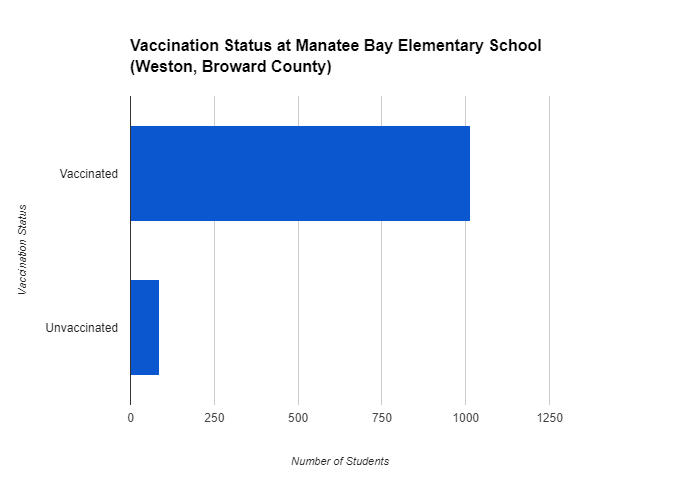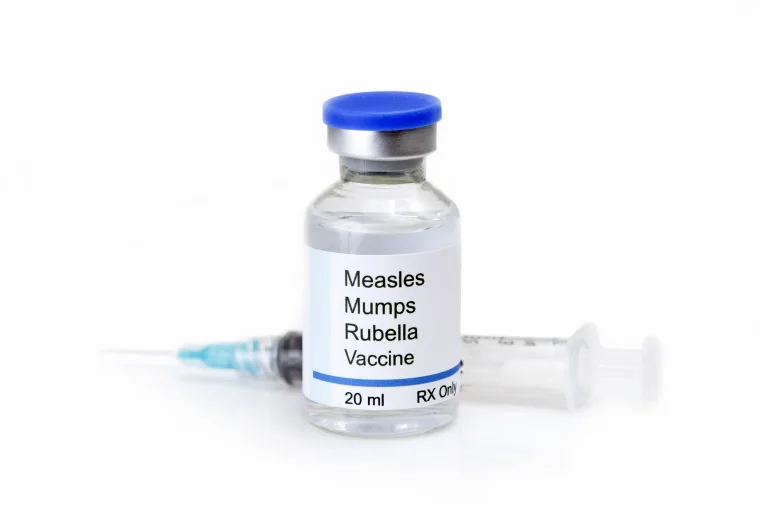In recent weeks, South Florida has been grappling with a concerning measles outbreak. Multiple cases has been confirmed, surfacing at Manatee Bay Elementary School in Weston, Broward County.
This resurgence comes on the heels of a nationwide alert issued by the U.S. Centers for Disease Control and Prevention (CDC), highlighting an increase in measles cases across the country. As health authorities scramble to contain the outbreak, it’s crucial to understand the factors contributing to this resurgence and the steps needed to combat it effectively.
Measles outbreak on a South Florida school:
A measles outbreak has hit Manatee Bay Elementary School in South Florida. Six confirmed cases have been reported just weeks after a nationwide alert about increased measles cases. The first case was detected on Friday. And as of Tuesday evening, the count had risen to six. The school district are undertaking proactive cleaning measures, including daily cleanings and a deep cleaning over the weekend.

Manatee Bay Elementary School is located in Weston, Broward County. It has approximately 1,100 students, with 86 of them reportedly not vaccinated against measles.
Nationwide Alert on Measles Outbreak:
The resurgence of measles in South Florida is part of a broader trend observed nationwide, prompting the U.S. Centers for Disease Control and Prevention (CDC) to issue a warning to healthcare providers across the country.
This outbreak follows a nationwide alert after 23 measles cases were confirmed over a recent two-month period. While some of these cases were from international travel, most of them involved unvaccinated children and adolescents.
Most concerning is the fact that many affected individuals had not received the measles-containing vaccine, despite being eligible. This underscores the urgent need for vaccination efforts to prevent future outbreaks.
Global Threat of Measles:
The rise in measles cases in the United States reflects a broader global trend, with measles emerging as a growing threat worldwide. The CDC’s alert emphasizes the increased number of measles importations, signaling a heightened risk of transmission within communities.
Measles cases have been continuing to rise globally. Hence, the importance of vaccination and surveillance measures cannot be overstated in preventing further spread.
Epidemiological Insights on Measles Outbreak:
Health authorities in Broward County are conducting epidemiological investigations to trace the source of the measles outbreak and identify potential contacts at risk of transmission. The Florida Department of Health in Broward County issued a statement Sunday, saying:
DOH-Broward is continuously working with all partners including Broward County Public Schools and local hospitals to identify close contacts that are at highest risk of transmission and severe illness.
Understanding the dynamics of measles transmission within the community is essential for implementing targeted interventions and containment strategies. The collaboration between public health agencies, schools, and healthcare providers is crucial for effectively managing the outbreak and protecting vulnerable populations.
What are the symptoms and complications of Measles:
Measles is highly contagious. The Measles Virus can survive for up to two hours in the air where an infected person has been. Initial symptoms typically appear seven to 14 days after infection. Some of these early symptoms include high fever, cough, runny nose, and red, watery eyes. A characteristic rash develops about three to five days later.
While most individuals recover without complications, measles virus can have severe consequences. In particular, vulnerable populations such as babies, young children, pregnant women, and individuals with compromised immune systems. Respiratory and neurologic complications can be fatal, with approximately 1 to 3 out of every 1,000 children infected with measles succumbing to the disease.
How can Measles be prevented?
The measles vaccine is a standard immunization administered to children in the United States, typically delivered in two doses. It is recommended that the initial dose be administered between the ages of 12 to 15 months, with a follow-up dose given between 4 to 6 years of age.

According to the CDC, the measles vaccine is a combination vaccine that not only provides protection against measles but also against mumps and rubella (MMR vaccine). There is also a variant of the vaccine, known as the MMRV vaccine, which additionally guards against varicella, commonly known as chickenpox.
Health experts emphasize that receiving the measles vaccine is the most effective method for safeguarding oneself and others against the measles virus. The vaccine boasts an impressive efficacy rate of about 98% in preventing measles infections. Consequently, it is reasonable to infer that the children affected by the measles outbreak at Manatee Bay Elementary School likely had not been vaccinated.
Conclusion:
The measles outbreak in South Florida serves as a stark reminder of the ongoing threat posed by vaccine-preventable diseases. As health authorities work to contain the outbreak and vaccinate at-risk populations, it is imperative for individuals to prioritize vaccination and adhere to public health recommendations. By fostering community-wide cooperation and vigilance, we can mitigate the impact of measles outbreaks and safeguard the health and well-being of our communities.
